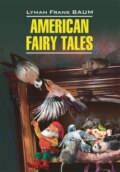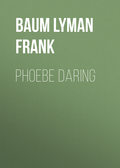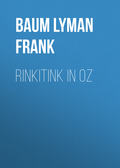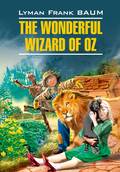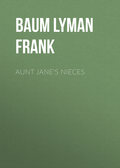
Лаймен Фрэнк Баум
The Master Key
CHAPTER FOUR
TESTING THE INSTRUMENTS
There is little doubt that had this strange experience befallen a grown man he would have been stricken with a fit of trembling or a sense of apprehension, or even fear, at the thought of having faced the terrible Demon of Electricity, of having struck the Master Key of the world's greatest natural forces, and finding himself possessed of three such wonderful and useful gifts. But a boy takes everything as a matter of course. As the tree of knowledge sprouts and expands within him, shooting out leaf after leaf of practical experience, the succession of surprises dulls his faculty of wonderment. It takes a great deal to startle a boy.
Rob was full of delight at his unexpected good fortune; but he did not stop to consider that there was anything remarkably queer or uncanny in the manner in which it had come to him. His chief sensation was one of pride. He would now be able to surprise those who had made fun of his electrical craze and force them to respect his marvelous powers. He decided to say nothing about the Demon or the accidental striking of the Master Key. In exhibiting to his friends the electrical devices he had acquired it would be "no end of fun" to mark their amazement and leave them to guess how he performed his feats.
So he put his treasures into his pocket, locked his workshop and went downstairs to his room to prepare for dinner.
While brushing his hair he remembered it was no longer necessary for him to eat ordinary food. He was feeling quite hungry at that moment, for he had a boy's ravenous appetite; but, taking the silver box from his pocket, he swallowed a tablet and at once felt his hunger as fully satisfied as if he had partaken of a hearty meal, while at the same time he experienced an exhilarating glow throughout his body and a clearness of brain and gaiety of spirits which filled him with intense gratification.
Still, he entered the dining-room when the bell rang and found his father and mother and sisters already assembled there.
"Where have you been all day, Robert?" inquired his mother.
"No need to ask," said Mr. Joslyn, with a laugh. "Fussing over electricity, I'll bet a cookie!"
"I do wish," said the mother, fretfully, "that he would get over that mania. It unfits him for anything else."
"Precisely," returned her husband, dishing the soup; "but it fits him for a great career when he becomes a man. Why shouldn't he spend his summer vacation in pursuit of useful knowledge instead of romping around like ordinary boys?"
"No soup, thank you," said Rob.
"What!" exclaimed his father, looking at him in surprise, "it's your favorite soup."
"I know," said Rob, quietly, "but I don't want any."
"Are you ill, Robert?" asked his mother.
"Never felt better in my life," answered Rob, truthfully.
Yet Mrs. Joslyn looked worried, and when Rob refused the roast, she was really shocked.
"Let me feel your pulse, my poor boy!" she commanded, and wondered to find it so regular.
In fact, Rob's action surprised them all. He sat calmly throughout the meal, eating nothing, but apparently in good health and spirits, while even his sisters regarded him with troubled countenances.
"He's worked too hard, I guess," said Mr. Joslyn, shaking his head sadly.
"Oh, no; I haven't," protested Rob; "but I've decided not to eat anything, hereafter. It's a bad habit, and does more harm than good."
"Wait till breakfast," said sister Helen, with a laugh; "you'll be hungry enough by that time."
However, the boy had no desire for food at breakfast time, either, as the tablet sufficed for an entire day. So he renewed the anxiety of the family by refusing to join them at the table.
"If this goes on," Mr. Joslyn said to his son, when breakfast was finished, "I shall be obliged to send you away for your health."
"I think of making a trip this morning," said Rob, carelessly.
"Where to?"
"Oh, I may go to Boston, or take a run over to Cuba or Jamaica," replied the boy.
"But you can not go so far by yourself," declared his father; "and there is no one to go with you, just now. Nor can I spare the money at present for so expensive a trip."
"Oh, it won't cost anything," replied Rob, with a smile.
Mr. Joslyn looked upon him gravely and sighed. Mrs. Joslyn bent over her son with tears in her eyes and said:
"This electrical nonsense has affected your mind, dear. You must promise me to keep away from that horrid workshop for a time."
"I won't enter it for a week," he answered. "But you needn't worry about me. I haven't been experimenting with electricity all this time for nothing, I can tell you. As for my health, I'm as well and strong as any boy need be, and there's nothing wrong with my head, either. Common folks always think great men are crazy, but Edison and Tesla and I don't pay any attention to that. We've got our discoveries to look after. Now, as I said, I'm going for a little trip in the interests of science. I maybe back to-night, or I may be gone several days. Anyhow, I'll be back in a week, and you mustn't worry about me a single minute."
"How are you going?" inquired his father, in the gentle, soothing tone persons use in addressing maniacs.
"Through the air," said Rob.
"Where's your balloon?" inquired sister Mabel, sarcastically.
"I don't need a balloon," returned the boy. "That's a clumsy way of traveling, at best. I shall go by electric propulsion."
"Good gracious!" cried Mr. Joslyn, and the mother murmured: "My poor boy! my poor boy!"
"As you are my nearest relatives," continued Rob, not noticing these exclamations, "I will allow you to come into the back yard and see me start. You will then understand something of my electrical powers."
They followed him at once, although with unbelieving faces, and on the way Rob clasped the little machine to his left wrist, so that his coat sleeve nearly hid it.
When they reached the lawn at the back of the house Rob kissed them all good-by, much to his sisters' amusement, and turned the indicator of the little instrument to the word "up."
Immediately he began to rise into the air.
"Don't worry about me!" he called down to them. "Good-by!"
Mrs. Joslyn, with a scream of terror, hid her face in her hands.
"He'll break his neck!" cried the astounded father, tipping back his head to look after his departing son.
"He'll break his neck!" cried the astounded father
"Come back! Come back!" shouted the girls to the soaring adventurer.
"I will – some day!" was the far-away answer.
Having risen high enough to pass over the tallest tree or steeple, Rob put the indicator to the east of the compass-dial and at once began moving rapidly in that direction.
The sensation was delightful. He rode as gently as a feather floats, without any exertion at all on his own part; yet he moved so swiftly that he easily distanced a railway train that was speeding in the same direction.
"This is great!" reflected the youth. "Here I am, traveling in fine style, without a penny to pay any one! And I've enough food to last me a month in my coat pocket. This electricity is the proper stuff, after all! And the Demon's a trump, and no mistake. Whee-ee! How small everything looks down below there. The people are bugs, and the houses are soap-boxes, and the trees are like clumps of grass. I seem to be passing over a town. Guess I'll drop down a bit, and take in the sights."
He pointed the indicator to the word "down," and at once began dropping through the air. He experienced the sensation one feels while descending in an elevator. When he reached a point just above the town he put the indicator to the zero mark and remained stationary, while he examined the place. But there was nothing to interest him, particularly; so after a brief survey he once more ascended and continued his journey toward the east.
At about two o'clock in the afternoon he reached the city of Boston, and alighting unobserved in a quiet street he walked around for several hours enjoying the sights and wondering what people would think of him if they but knew his remarkable powers. But as he looked just like any other boy no one noticed him in any way.
It was nearly evening, and Rob had wandered down by the wharves to look at the shipping, when his attention was called to an ugly looking bull dog, which ran toward him and began barking ferociously.
"Get out!" said the boy, carelessly, and made a kick at the brute.
The dog uttered a fierce growl and sprang upon him with bared teeth and flashing red eyes. Instantly Rob drew the electric tube from his pocket, pointed it at the dog and pressed the button. Almost at the same moment the dog gave a yelp, rolled over once or twice and lay still.
"I guess that'll settle him," laughed the boy; but just then he heard an angry shout, and looking around saw a policeman running toward him.
"Kill me dog, will ye – eh?" yelled the officer; "well, I'll just run ye in for that same, an' ye'll spend the night in the lock-up!" And on he came, with drawn club in one hand and a big revolver in the other.
"You'll have to catch me first," said Rob, still laughing, and to the amazement of the policeman he began rising straight into the air.
"Come down here! Come down, or I'll shoot!" shouted the fellow, flourishing his revolver.
Rob was afraid he would; so, to avoid accidents, he pointed the tube at him and pressed the button. The red-whiskered policeman keeled over quite gracefully and fell across the body of the dog, while Rob continued to mount upward until he was out of sight of those in the streets.
"That was a narrow escape," he thought, breathing more freely. "I hated to paralyze that policeman, but he might have sent a bullet after me. Anyhow, he'll be all right again in an hour, so I needn't worry."
It was beginning to grow dark, and he wondered what he should do next. Had he possessed any money he would have descended to the town and taken a bed at a hotel, but he had left home without a single penny. Fortunately the nights were warm at this season, so he determined to travel all night, that he might reach by morning some place he had never before visited.
Cuba had always interested him, and he judged it ought to lie in a southeasterly direction from Boston. So he set the indicator to that point and began gliding swiftly toward the southeast.
He now remembered that it was twenty-four hours since he had eaten the first electrical tablet. As he rode through the air he consumed another. All hunger at once left him, while he felt the same invigorating sensations as before.
After a time the moon came out, and Rob amused himself gazing at the countless stars in the sky and wondering if the Demon was right when he said the world was the most important of all the planets.
But presently he grew sleepy, and before he realized what was happening he had fallen into a sound and peaceful slumber, while the indicator still pointed to the southeast and he continued to move rapidly through the cool night air.
CHAPTER FIVE
THE CANNIBAL ISLAND
Doubtless the adventures of the day had tired Rob, for he slept throughout the night as comfortably as if he had been within his own room, lying upon his own bed. When, at last, he opened his eyes and gazed sleepily about him, he found himself over a great body of water, moving along with considerable speed.
"It's the ocean, of course," he said to himself. "I haven't reached Cuba yet."
It is to be regretted that Rob's knowledge of geography was so superficial; for, as he had intended to reach Cuba, he should have taken a course almost southwest from Boston, instead of southeast. The sad result of his ignorance you will presently learn, for during the entire day he continued to travel over a boundless waste of ocean, without the sight of even an island to cheer him.
The sun shone so hot that he regretted he had not brought an umbrella. But he wore a wide-brimmed straw hat, which protected him somewhat, and he finally discovered that by rising to a considerable distance above the ocean he avoided the reflection of the sun upon the water and also came within the current of good breeze.
Of course he dared not stop, for there was no place to land; so he calmly continued his journey.
"It may be I've missed Cuba," he thought; "but I can not change my course now, for if I did I might get lost, and never be able to find land again. If I keep on as I am I shall be sure to reach land of some sort, in time, and when I wish to return home I can set the indicator to the northwest and that will take me directly back to Boston."
This was good reasoning, but the rash youth had no idea he was speeding over the ocean, or that he was destined to arrive shortly at the barbarous island of Brava, off the coast of Africa. Yet such was the case; just as the sun sank over the edge of the waves he saw, to his great relief, a large island directly in his path.
He dropped to a lower position in the air, and when he judged himself to be over the center of the island he turned the indicator to zero and stopped short.
The country was beautifully wooded, while pretty brooks sparkled through the rich green foliage of the trees. The island sloped upwards from the sea-coast in all directions, rising to a hill that was almost a mountain in the center. There were two open spaces, one on each side of the island, and Rob saw that these spaces were occupied by queer-looking huts built from brushwood and branches of trees. This showed that the island was inhabited, but as Rob had no idea what island it was he wisely determined not to meet the natives until he had discovered what they were like and whether they were disposed to be friendly.
So he moved over the hill, the top of which proved to be a flat, grass-covered plateau about fifty feet in diameter. Finding it could not be easily reached from below, on account of its steep sides, and contained neither men nor animals, he alighted on the hill-top and touched his feet to the earth for the first time in twenty-four hours.
The ride through the air had not tired him in the least; in fact, he felt as fresh and vigorous as if he had been resting throughout the journey. As he walked upon the soft grass of the plateau he felt elated, and compared himself to the explorers of ancient days; for it was evident that civilization had not yet reached this delightful spot.
There was scarcely any twilight in this tropical climate and it grew dark quickly. Within a few minutes the entire island, save where he stood, became dim and indistinct. He ate his daily tablet, and after watching the red glow fade in the western sky and the gray shadows of night settle around him he stretched himself comfortably upon the grass and went to sleep.
The events of the day must have deepened his slumber, for when he awoke the sun was shining almost directly over him, showing that the day was well advanced. He stood up, rubbed the sleep from his eyes and decided he would like a drink of water. From where he stood he could see several little brooks following winding paths through the forest, so he settled upon one that seemed farthest from the brushwood villages, and turning his indicator in that direction soon floated through the air to a sheltered spot upon the bank.
Kneeling down, he enjoyed a long, refreshing drink of the clear water, but as he started to regain his feet a coil of rope was suddenly thrown about him, pinning his arms to his sides and rendering him absolutely helpless.
At the same time his ears were saluted with a wild chattering in an unknown tongue, and he found himself surrounded by a group of natives of hideous appearance. They were nearly naked, and bore spears and heavy clubs as their only weapons. Their hair was long, curly, and thick as bushes, and through their noses and ears were stuck the teeth of sharks and curious metal ornaments.
These creatures had stolen upon Rob so quietly that he had not heard a sound, but now they jabbered loudly, as if much excited.
Finally one fat and somewhat aged native, who seemed to be a chief, came close to Rob and said, in broken English:
"How get here?"
"I flew," said the boy, with a grin.
The chief shook his head, saying:
"No boat come. How white man come?"
"Through the air," replied Rob, who was rather flattered at being called a "man."
The chief looked into the air with a puzzled expression and shook his head again.
"White man lie," he said calmly.
Then he held further conversation with his fellows, after which he turned to Rob and announced:
"Me see white man many times. Come in big boats. White men all bad. Make kill with bang-sticks. We kill white man with club. Then we eat white man. Dead white man good. Live white man bad!"
This did not please Rob at all. The idea of being eaten by savages had never occurred to him as a sequel to his adventures. So he said rather anxiously to the chief:
"Look here, old fellow; do you want to die?"
"Me no die. You die," was the reply.
"You'll die, too, if you eat me," said Rob. "I'm full of poison."
"Poison? Don't know poison," returned the chief, much perplexed to understand him.
"Well, poison will make you sick – awful sick. Then you'll die. I'm full of it; eat it every day for breakfast. It don't hurt white men, you see, but it kills black men quicker than the bang-stick."
The chief listened to this statement carefully, but only understood it in part. After a moment's reflection he declared:
"White man lie. Lie all time. Me eat plenty white man. Never get sick; never die." Then he added, with renewed cheerfulness: "Me eat you, too!"
Before Rob could think of a further protest, his captors caught up the end of the rope and led him away through the forest. He was tightly bound, and one strand of rope ran across the machine on his wrist and pressed it into his flesh until the pain was severe. But he resolved to be brave, whatever happened, so he stumbled along after the savages without a word.
After a brief journey they came to a village, where Rob was thrust into a brushwood hut and thrown upon the ground, still tightly bound.
"We light fire," said the chief. "Then kill little white man. Then eat him."
With this comforting promise he went away and left Rob alone to think the matter over.
"This is tough," reflected the boy, with a groan. "I never expected to feed cannibals. Wish I was at home with mother and dad and the girls. Wish I'd never seen the Demon of Electricity and his wonderful inventions. I was happy enough before I struck that awful Master Key. And now I'll be eaten – with salt and pepper, probably. Wonder if there'll be any gravy. Perhaps they'll boil me, with biscuits, as mother does chickens. Oh-h-h-h-h! It's just awful!"
In the midst of these depressing thoughts he became aware that something was hurting his back. After rolling over he found that he had been lying upon a sharp stone that stuck out of the earth. This gave him an idea. He rolled upon the stone again and began rubbing the rope that bound him against the sharp edge.
Outside he could hear the crackling of fagots and the roar of a newly-kindled fire, so he knew he had no time to spare. He wriggled and pushed his body right and left, right and left, sawing away at the rope, until the strain and exertion started the perspiration from every pore.
At length the rope parted, and hastily uncoiling it from his body Rob stood up and rubbed his benumbed muscles and tried to regain his lost breath. He had not freed himself a moment too soon, he found, for hearing a grunt of surprise behind him he turned around and saw a native standing in the door of the hut.
Rob laughed, for he was not a bit afraid of the blacks now. As the native made a rush toward him the boy drew the electric tube from his pocket, pointed it at the foe, and pressed the button. The fellow sank to the earth without even a groan, and lay still.
Then another black entered, followed by the fat chief. When they saw Rob at liberty, and their comrade lying apparently dead, the chief cried out in surprise, using some expressive words in his own language.
"If it's just the same to you, old chap," said Rob, coolly, "I won't be eaten to-day. You can make a pie of that fellow on the ground."
"No! We eat you," cried the chief, angrily. "You cut rope, but no get away; no boat!"
"I don't need a boat, thank you," said the boy; and then, as the other native sprang forward, he pointed the tube and laid him out beside his first victim.
At this act the chief stood an instant in amazed uncertainty. Then he turned and rushed from the hut.
Laughing with amusement at the waddling, fat figure, Rob followed the chief and found himself standing almost in the center of the native village. A big fire was blazing merrily and the blacks were busy making preparations for a grand feast.
Rob was quickly surrounded by a crowd of the villagers, who chattered fiercely and made threatening motions in his direction; but as the chief cried out to them a warning in the native tongue they kept a respectful distance and contented themselves with brandishing their spears and clubs.
"If any of your fellows come nearer," Rob said to the fat chief, "I'll knock 'em over."
"What you make do?" asked the chief, nervously.
"Watch sharp, and you'll see," answered Rob. Then he made a mocking bow to the circle and continued: "I'm pleased to have met you fellows, and proud to think you like me well enough to want to eat me; but I'm in a bit of a hurry to-day, so I can't stop to be digested." After which, as the crowd broke into a hum of surprise, he added: "Good-day, black folks!" and quickly turned the indicator of his traveling machine to the word "up."
Slowly he rose into the air, until his heels were just above the gaping blacks; but there he stopped short. With a thrill of fear he glanced at the indicator. It was pointed properly, and he knew at once that something was wrong with the delicate mechanism that controlled it. Probably the pressure of the rope across its face, when he was bound, had put it out of order. There he was, seven feet in the air, but without the power to rise an inch farther.
This short flight, however, had greatly astonished the blacks, who, seeing his body suspended in mid-air, immediately hailed him as a god, and prostrated themselves upon the ground before him.
The fat chief had seen something of white men in his youth, and had learned to mistrust them. So, while he remained as prostrate as the rest, he peeped at Rob with one of his little black eyes and saw that the boy was ill at ease, and seemed both annoyed and frightened.
So he muttered some orders to the man next him, who wriggled along the ground until he had reached a position behind Rob, when he rose and pricked the suspended "god" with the point of his spear.
"Ouch!" yelled the boy; "stop that!"
He twisted his head around, and seeing the black again make a movement with the spear, Rob turned his electric tube upon him and keeled him over like a ten-pin.
The natives, who had looked up at his cry of pain, again prostrated themselves, kicking their toes against the ground in a terrified tattoo at this new evidence of the god's powers.
The situation was growing somewhat strained by this time, and Rob did not know what the savages would decide to do next; so he thought it best to move away from them, since he was unable to rise to a greater height. He turned the indicator towards the south, where a level space appeared between the trees; but instead of taking that direction he moved towards the northeast, a proof that his machine had now become absolutely unreliable. Moreover, he was slowly approaching the fire, which, although it had ceased blazing, was a mass of glowing red embers.
In his excitement he turned the indicator this way and that, trying to change the direction of his flight, but the only result of his endeavor was to carry him directly over the fire, where he came to a full stop.
"Murder! Help! Fire and blazes!" he cried, as he felt the glow of the coals beneath him. "I'll be roasted, after all! Here; help, Fatty, help!"
The fat chief sprang to his feet and came to the rescue. He reached up, caught Rob by the heels, and pulled him down to the ground, away from the fire. But the next moment, as he clung to the boy's feet, they both soared into the air again, and, although now far enough from the fire to escape its heat, the savage, finding himself lifted from the earth, uttered a scream of horror and let go of Rob, to fall head over heels upon the ground.
The other blacks had by this time regained their feet, and now they crowded around their chief and set him upright again.
Rob continued to float in the air, just above their heads, and now abandoned all thoughts of escaping by means of his wrecked traveling machine. But he resolved to regain a foothold upon the earth and take his chances of escape by running rather than flying. So he turned the indicator to the word "down," and very slowly it obeyed, allowing him, to his great relief, to sink gently to the ground.



